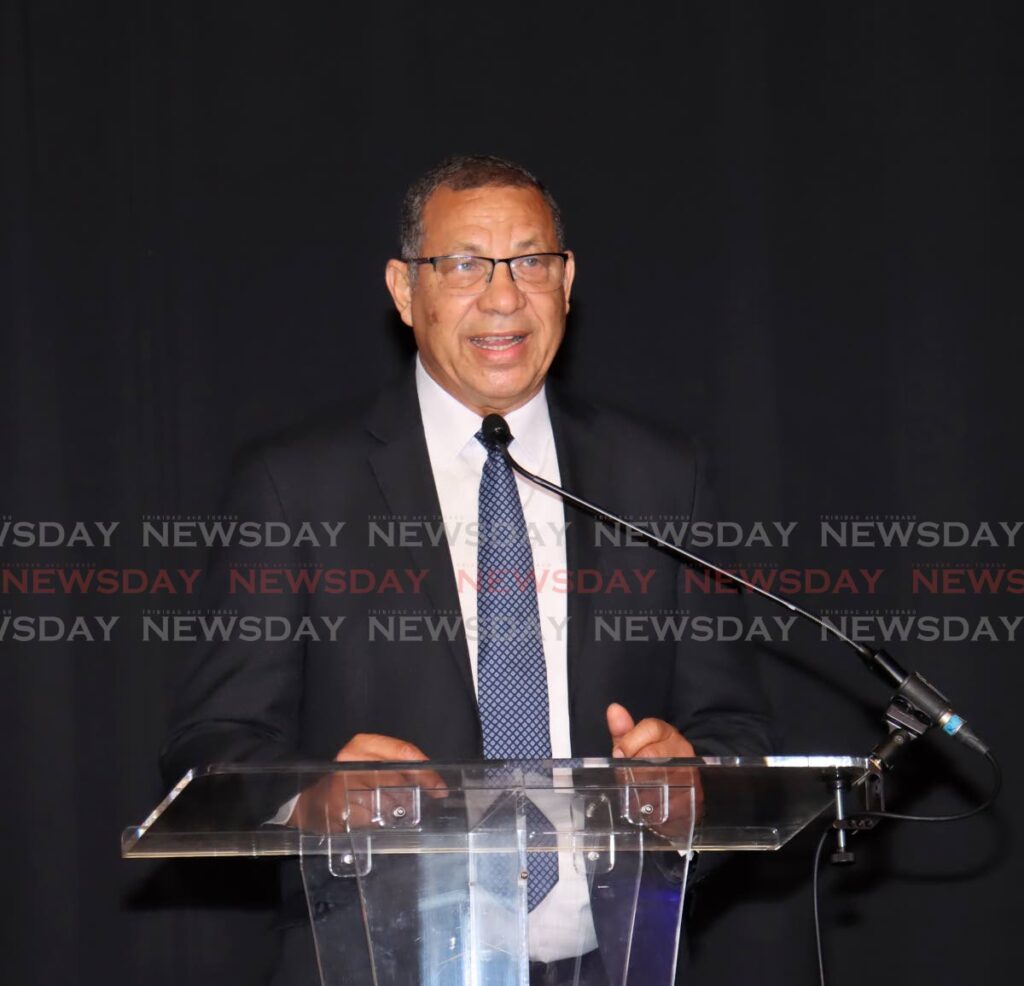Ex-minister Mariano Browne: Treat forex like any other commodity

ECONOMIST and former PNM minister in the Ministry of Finance Mariano Browne said foreign exchange should be treated like any other commodity, and prices to access it should increase or decrease based on supply and demand.
Browne said the government got foreign exchange from taxes on the energy sector but it was discriminatory to force those companies to pay in US dollars. And with 40 per cent less natural gas than in 2011 and current prices below what was projected in the budget, there would be less foreign exchange available.
“If you earn less foreign exchange and everybody wants the same amount of foreign exchange that they had, what would you do? They want to give everybody a little piece but no one is satisfied.”
He dismissed Ramsaran Dairy Products founder Rajnanan Ramsaran’s complaints when Ramsaran wrote the Central Bank governor, the Auditor General and the International Monetary Fund saying foreign exchange in TT was not equitably distributed and there was a lack of information on its distribution.
“The presumption in the statement is there are some people the banking sector prefers to others. That could mean on the basis of a relationship, race, it could mean any different kind of thing.
“The point is, he does not know. What he is saying is, ‘We ain’t getting.’ But everybody’s saying that! He’s not the only one.”
He said there were roughly 25,000 registered businesses, 5,000 active businesses and thousands of individuals who wanted foreign exchange, while there were four main banks in TT. He said there simply was not enough to go around.
He said the exchange rate of every currency changes every minute, hour and day according to the market. Yet, for the past decade or so, the US rate had been around TT$6.80.
He pointed out that, for retail transactions, business were trading foreign exchange at different rates than the banks. Also, he said there was a thriving black market in foreign currency because people could not get the amount they wanted at the banks.
“So we’re not really talking about a flexible exchange rate. We’re talking about a fixed exchange rate. Let’s be serious about that.
“By creating a false market where we are entrenching scarcity – we give Tom some and Dick some, give everybody a little piece – and everybody is getting it at the same price, people will go and look for foreign exchange somewhere else and pay what price they have to pay.”
Browne said people were calling for regulation and investigations but that was not going to get TT more foreign exchange. He asked how one would regulate the banks’ distribution of foreign exchange.
He said it was tried before in 1980s when there were the EC1 and EC0 systems. Allocations were based on what a company imported the previous year. But that allocation was limited to how much foreign exchange the government had at any one point in time.
“Any time you put systems like that in position, you’re going to get corruption and all like manner of things. So the only way to solve this issue is price.
“The same way you’ll go to the market and you decide which vendor you’re going by, which is the best tomatoes and what is the best price.”
He said TT adopted a floating exchange rate regime in 1993 so the banks should be allowed to set their own rates, but the Central Bank (CBTT) was not allowing them to do it. He said an auction system was put in place since 2012 to allow commercial banks and authorised foreign exchange dealers to buy foreign currencies from the CBTT, but it was not being used.
When it was pointed out such a move could put smaller businesses in jeopardy, he said they could raise their prices.
“This is business. Prices go up and prices come down. That’s a reality. You could either buy it or you can’t buy it. That’s the way the world works.”
Another economist, who spoke on the condition of anonymity, said this lack of foreign exchange was not a new problem and he did not believe the situation was any worse than other times in the past.
“There are ups and downs with foreign exchange. And every time the flow comes down there is a little jittery in the market. It’s not really different from what it was before. Banks do take precautionary measures to preserve whatever they have.”
Scotiabank recently announced, until further notice, it would be reducing the maximum US dollar spending limit on its personal credit cards, except its Aero Mastercard Black, to US$2,000 per month effective December 1. It added that ScotiaCard Visa debit cards would no longer be able to make overseas point-of-sale purchases or ATM withdrawals.
In a post on X on November 1, Finance Minister Colm Imbert said he would “very carefully” consider calls for him to regulate access to foreign exchange distributed by private commercial banks.
The economist said previous CBTT governors had similar problems and there were attempts to set up a policy framework for commercial bank to use their resources effectively. But he was uncertain if one was in place now, and if there was, he believed it should be adjusted.
He said two things were necessary, a foreign exchange policy, which required discussions with commercial banks, and government had to find new sources of foreign exchange.

Comments
"Ex-minister Mariano Browne: Treat forex like any other commodity"